- Home
- Hilary Mantel
The School of English Page 3
The School of English Read online
Page 3
‘I don’t need any crap bed in a cupboard,’ he yelled. ‘I can do it to you against the wall. Don’t try shouting.’
‘I will not shout,’ she said.
He stared at her. ‘Are you stupid? You have to shout. Did you hear what I’m going to do?’
‘Yes, sir,’ she said, ‘but you cannot. Because rape is forcible violation, it is fighting back. I am not going to fight you, because I am starved and weak, and even if I were not, you are able to overcome me. So I will not take the risk to get hurt and go to the A&E. You need not rip off my clothes because I have no money for more. If you like I will take them off myself, or if you are in a hurry I can just lift up my skirt. Then you can do the thing to me, if you know how. It is not like porno, where the woman is always open. It takes time. It is difficult. It is like getting the bed out of the cupboard.’
When, standing in the panic room, he had heard her story to the end, the butler said, ‘In truth, though I blame the boy, you are partly to blame.’
‘How is that?’ Marcella asked.
‘I believe you know how. You taunted him. With chocolate milk. Chips. Chocolate raisins. Implying his position was that of helpless child.’
‘And he wished to show himself a man,’ Marcella said. ‘And if you call it taunting, I do not. For I know of old, if the raisins were not in his bag when he got back to school, he was ringing from Wiltshire and playing merry hell. Frankly I do not wish to live in a world where a woman cannot offer a child a meal without he feels free to concuss her.’
‘We cannot choose what world we live in,’ Desmond Maddox said. ‘Though we can perhaps choose our School of English. Snivel, sniffle: there is a difference.’
‘I myself was accused of having cereal bars. This was unjust. But I did not create mayhem.’
‘I have one question,’ the butler said. ‘How did you get references? From Sir Mike? You did not steal their headed letter-paper, did you?’
Marcella was inspecting the snacks in the panic-room cupboard. Holding up a little packet she said, ‘This one is out of its sell-by date.’
‘Oh, nuts,’ Desmond said. ‘It will be OK. Or you can take them if you want.’
‘Mouldy, maybe,’ she said. ‘I will take the risk.’ She slipped the packet into her bag. It was her old bag, though without her life savings. When she came home from ski trip, Lady Sophie had found it tossed into the garden. ‘I knew it could only be yours,’ she said, when she handed it back.
‘Once we had a chef who forged his reference,’ Desmond said. ‘He was given the quick-march. Such things are always found out.’
‘I cannot guess at his story,’ she said. ‘I do not think it happened to him, what happened to me.’
‘In fact,’ Desmond said, ‘I am moving on myself soon. Down the road, Regent’s Park. To work behind a Nash façade, I should say it is every butler’s dream. So you will be coming to St John’s Wood, Marcella, just as I am going hence.’
‘Ah,’ she said. ‘Just as we had come on first-name terms. Who knows, our friendship might have blossomed. You have given notice already?’
‘Not yet, so hush.’
She touched her breast. ‘Secrecy resides herein.’
‘I found the post in The Lady,’ he said. ‘Nice family. Never come into this country more than one, two, three weeks a year. Bring their entourage with their own chef, they don’t eat English food on grounds of taste and hygiene and because poison might get in it. So it’s cushy number. Security guarding, really, nine–ten months of the year.’
Desmond had taken his hand from the wall. Her eyes searched and searched for a mark but she could not see one. Still she searched; she did not want to be faulted for carelessness, in her first week. She asked, ‘Your new family, do they have a panic room?’
‘Beneath those houses,’ the butler said, ‘you should see what goes on. No one suspects the half of it. The whole earth is dug out. Spaciousness beneath. The panic room is seven times the size of this one. The whole of London can fall down around them and yet their freezer is fully stocked. All showers are multi-jet steam cabinets, plus the kitchen has coffee machine built in, ice machine, temperature-controlled cabinet for wine storage, sous vide machine with vacuum sealer, and an air-filtration system that is suitable for allergy sufferers. The walls are built to withstand a nucular bomb.’
‘Nuclear,’ she said.
She saw the look that flitted across his face: don’t you correct my English, yellow bitch. At once it was replaced by a look of bored neutrality, as he led her from the panic room and up the stairs. But she had seen it; she would not forget it; she did not forget things, except that she had forgotten those events that followed the first blow. There was an area of darkness, a darkness that flowed like a river, a darkness that pooled like a lake; then after some time, how long she could not know, there was bright light, and voices and pain. When she opened her eyes, the first thing she saw was the puzzled, anxious face of the child Jonquil, who dabbed at her mouth with a tissue held in her small fingers. She realised that, in default of her own bed, Joshua had used his sister’s for her violation, but she recalled nothing of that; the bruises were fresh on her back where he had dragged her down the stairs, but she did not feel it at the time. The stencilled sheep on the headboard said yes sir, no sir, three bags full; the calves sank to their knees in the lush meadow grass; the bluebirds shivered on their wires as the mobile chimed in the breeze.
In subsequent days, after Desmond had said his farewells and she had settled into her new situation, she thought of the butler and his new employers at Regent’s Park, and wondered how they were all getting on. If they came just once, twice, three times a year, they might never visit the panic room. But if the need should arise, and they found themselves below ground: what would they do when the first panic ebbed, when it subsided into that dull state of fear in which so many of us live our lives, once we leave our native shores, our parents’ house? How would they pass the weeks, while London crumbled and the feral dogs scavenged in the streets, while the air filters clogged and the freezer’s stocks were depleted? Would they have books to read? Would they complete puzzles? Would they play games? She imagined solemn gentlemen from the Middle East, white robes hoisted to show hairy legs and black silk socks; she imagined their black-swathed wives, hands emerging to clutch hands, each finger weighted with jewels. Here we go round the mulberry bush. Ring of roses. She remembered the newspaper, the Evening Standard, that had sustained her during those lost hours in Notting Hill. The situations she could have had. ‘Work waiting,’ the adverts said. ‘Operative wanted for confined spaces.’
Work is always waiting, you cannot escape it. Dry liners and fitters were needed, trackmen, jointers and underpinners, multi-trade operators and plastering gangs. When she got out of hospital, and was ready to work again, she had visited an agency. She mentioned these trades and confessed she did not know what they were. They advised playing to the strengths listed in her letter of recommendation: Marcella is always willing. ‘However,’ they said to her, ‘your cosmetic impression is bad.’
She did not deny it. She had lost teeth in the attack. But we all lose them, sooner or later. She had said this to the woman at the agency; who then agreed to keep her CV on file. A week went by, and nothing, despite ringing them every day.
Every day she looked at the Standard. Welders were wanted, painters and fabricators. The word snagged her attention: fabricators. She had turned as usual to the columns of The Lady, and there she found her current post in St John’s Wood. When she was called for her interview, a friend went for her, one with more teeth; and when she presented herself on her first day, no one had said, you are not the woman we saw last week. Desmond had simply told her, ‘I am Mr Maddox, the butler’; his glance had passed over her; he gave her an overall, showed her over the house, and allowed her to visit the panic room, the first she had ever seen.
Sometimes, in St John’s Wood, she has dreams about her previous job and how it ended: in a
hot exchange of words, in the banging of the cabinet-bed across the floor; in blackout, in absence. She is no longer sure that the facts were exactly those she had given to the butler. It may be she has been a fabricator. That some painting has occurred, or underpinning. Time has passed. It is a great healer or so they aver. Perhaps the pain she felt was heartbreak, not knuckles. Perhaps the story did not happen to her, but to her friend; women work for each other’s wages, names are erased and histories pooled, and you cannot tell these friends apart, when they are rolled in their blankets, only heads visible and eyes closed, lying in the miasma of chicken fat and frying oil. The boy will be punished. He will say he does not understand why. The camera will catch him on the steps of the law court, a burger in his hand, his mouth open in anticipation. Contested versions of conversations will be aired. (Snivel, sniffle.) The issue of consent will be raised: when did she give hers? Was it when she left her country? Was it when she took the job? Was it when she agreed to be born? The case will collapse for lack of evidence. Money will change hands. Here in St John’s Wood she will be safe, or not. She dreams of awakening, and it is only the dream that makes her think, this happened to Marcella, no one else; she sees the Alpine sunlight sharp as glass, and the child Jonquil, back from ski break, sniffling as she dabs the blood from her face.
A Note on the Author
Hilary Mantel is the author of fourteen books, including A Place of Greater Safety, Beyond Black and the memoir Giving Up the Ghost. Wolf Hall and its sequel Bring Up the Bodies were both awarded the Man Booker Prize. Bring Up the Bodies also won the Costa Book of the Year. In 2014 she was made a Dame.
Read On
Wolf Hall
‘Our greatest modern English prose writer’
SIR PETER STOTHARD, CHAIR OF THE JUDGES FOR THE MAN BOOKER PRIZE 2012
‘A magnificent achievement’
SARAH DUNANT
Tap here to buy the eBook now.
Bring Up the Bodies
‘In another league. This ongoing story of Henry VIII’s right-hand man is the finest piece of historical fiction I have ever read. A staggering achievement’
SUNDAY TELEGRAPH
‘Simply exceptional … I envy anyone who hasn’t yet read it’
DAILY MAIL
Tap here to buy the eBook now.
The Assassination of Margaret Thatcher
‘What a remarkable writer she is. She is piercingly, even laceratingly observant, and every remembered detail has the sharpness of a good photograph’
HELEN DUNMORE
‘Mantel can out-write most writers of her generation’
MAGGIE GEE
Tap here to buy the eBook now.
Also by Hilary Mantel
Beyond Black
Every Day is Mother’s Day
Vacant Possession
Eight Months on Ghazzah Street
Fludd
A Place of Greater Safety
A Change of Climate
An Experiment in Love
The Giant, O’Brien
Learning to Talk
Wolf Hall
Bring Up the Bodies
The Assassination of Margaret Thatcher
NON-FICTION
Giving Up the Ghost
About the Publisher
Australia
HarperCollins Publishers (Australia) Pty. Ltd.
Level 13, 201 Elizabeth Street
Sydney, NSW 2000, Australia
http://www.harpercollins.com.au
Canada
HarperCollins Canada
2 Bloor Street East - 20th Floor
Toronto, ON, M4W, 1A8, Canada
http://www.harpercollins.ca
New Zealand
HarperCollins Publishers (New Zealand) Limited
P.O. Box 1
Auckland, New Zealand
http://www.harpercollins.co.nz
United Kingdom
HarperCollins Publishers Ltd.
1 London Bridge Street
London, SE1 9GF, UK
http://www.harpercollins.co.uk
United States
HarperCollins Publishers Inc.
195 Broadway
New York, NY 10007
http://www.harpercollins.com

 Every Day Is Mother's Day
Every Day Is Mother's Day An Experiment in Love
An Experiment in Love Wolf Hall
Wolf Hall A Place of Greater Safety
A Place of Greater Safety Vacant Possession
Vacant Possession The Giant, O'Brien
The Giant, O'Brien Beyond Black
Beyond Black Ink in the Blood: A Hospital Diary
Ink in the Blood: A Hospital Diary The School of English
The School of English Giving Up the Ghost
Giving Up the Ghost The Mirror and the Light: 2020’s highly anticipated conclusion to the best selling, award winning Wolf Hall series (The Wolf Hall Trilogy, Book 3)
The Mirror and the Light: 2020’s highly anticipated conclusion to the best selling, award winning Wolf Hall series (The Wolf Hall Trilogy, Book 3) Fludd
Fludd Eight Months on Ghazzah Street
Eight Months on Ghazzah Street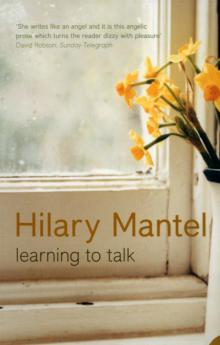 Learning to Talk
Learning to Talk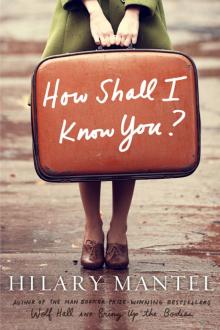 How Shall I Know You?: A Short Story
How Shall I Know You?: A Short Story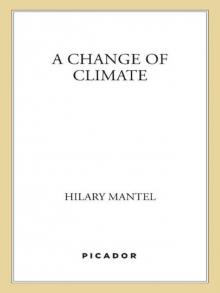 A Change of Climate
A Change of Climate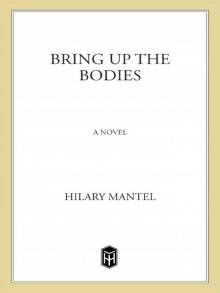 Bring Up the Bodies
Bring Up the Bodies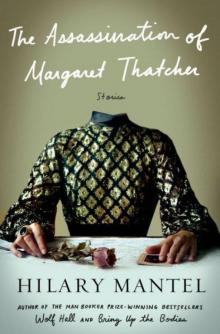 The Assassination of Margaret Thatcher: Stories
The Assassination of Margaret Thatcher: Stories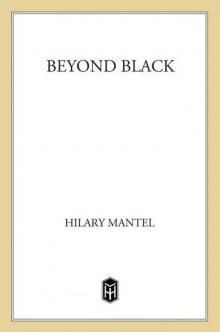 Beyond Black: A Novel
Beyond Black: A Novel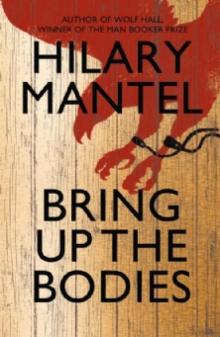 Wolf Hall: Bring Up the Bodies
Wolf Hall: Bring Up the Bodies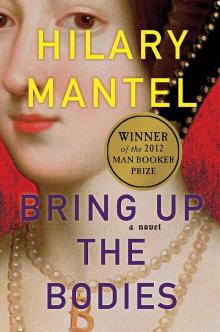 Bring Up the Bodies tct-2
Bring Up the Bodies tct-2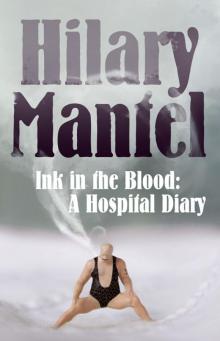 Ink in the Blood
Ink in the Blood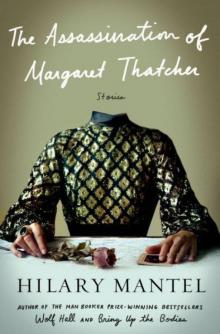 The Assassination of Margaret Thatcher
The Assassination of Margaret Thatcher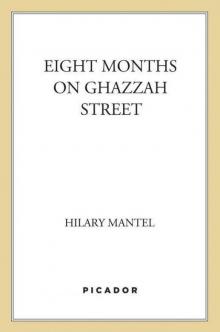 Eight Months on Ghazzah Street: A Novel
Eight Months on Ghazzah Street: A Novel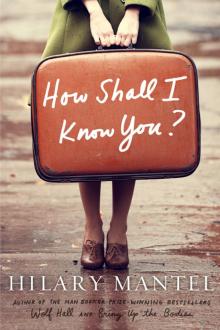 How Shall I Know You?
How Shall I Know You?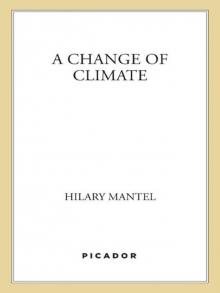 A Change of Climate: A Novel
A Change of Climate: A Novel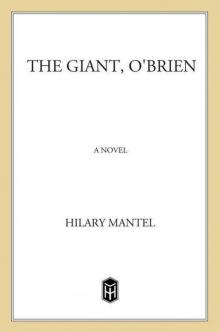 The Giant, O'Brien: A Novel
The Giant, O'Brien: A Novel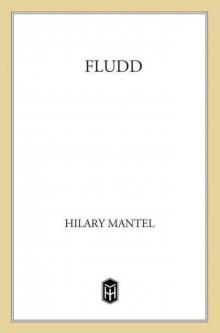 Fludd: A Novel
Fludd: A Novel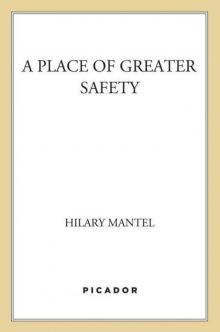 A Place of Greater Safety: A Novel
A Place of Greater Safety: A Novel An Experiment in Love: A Novel
An Experiment in Love: A Novel